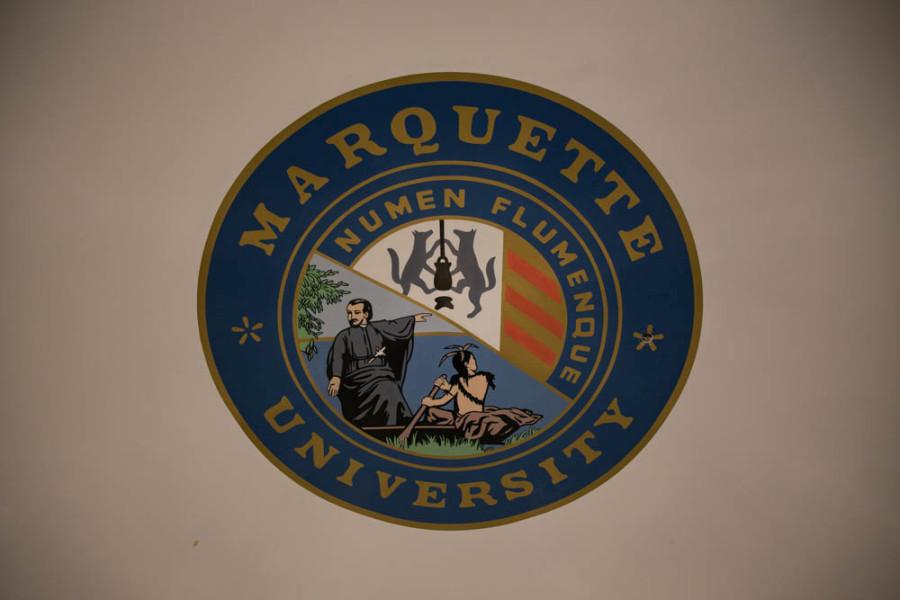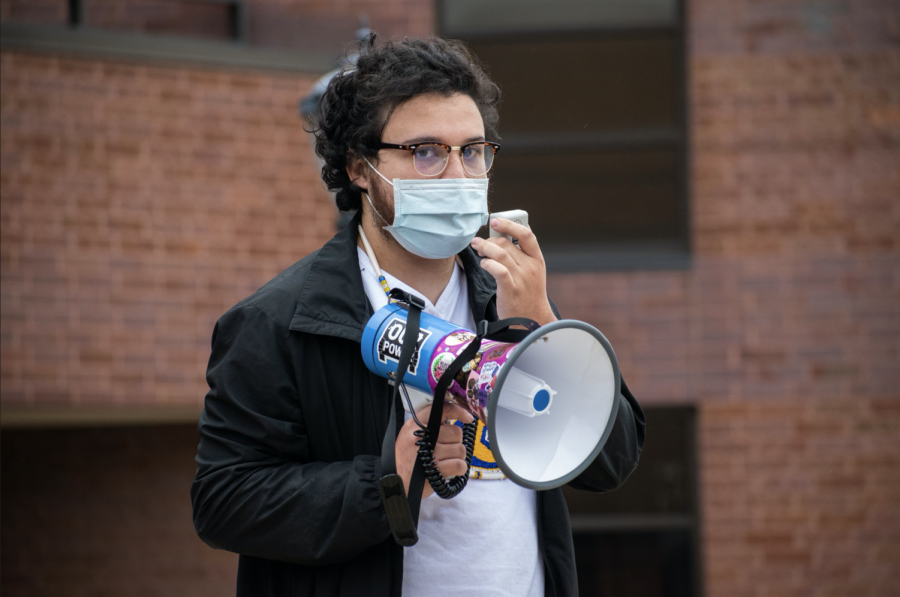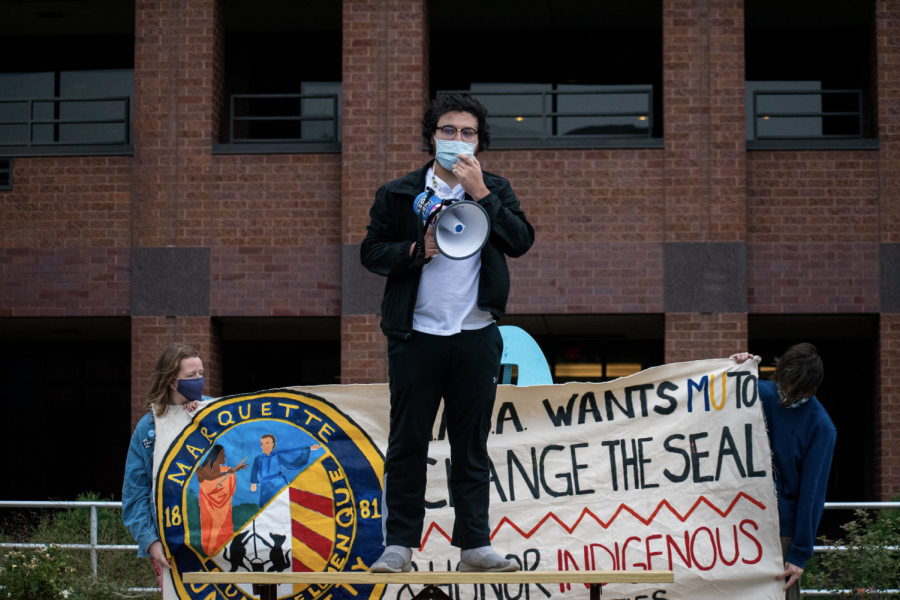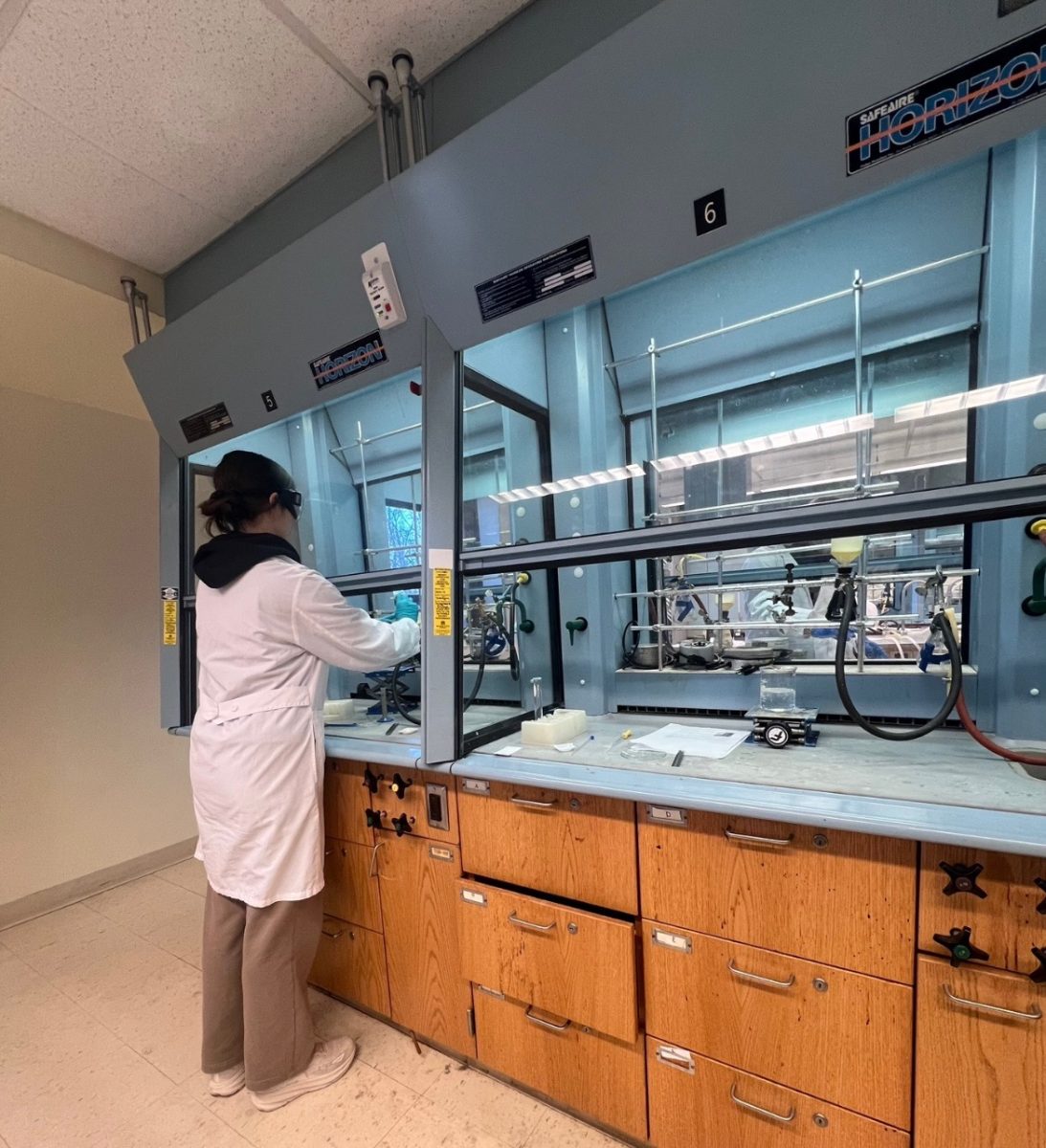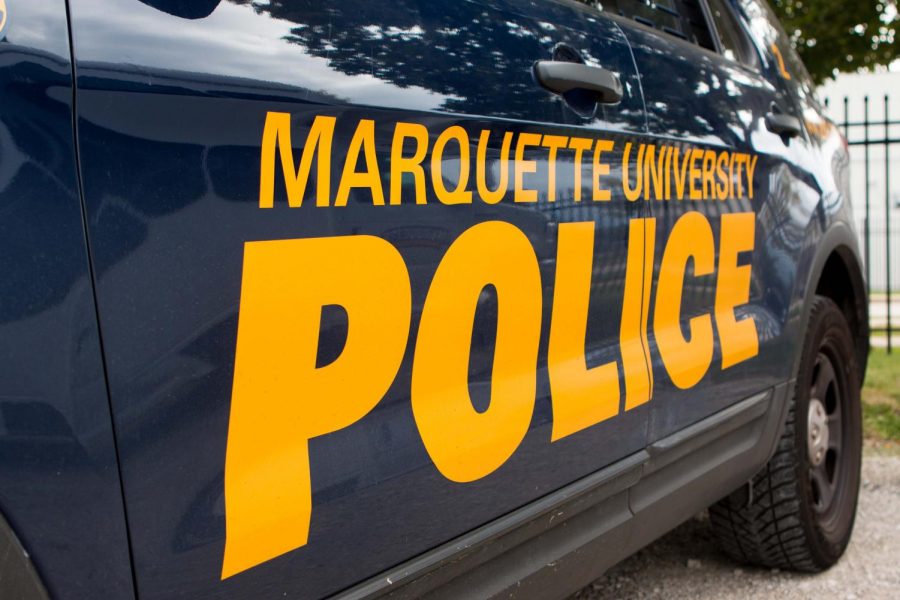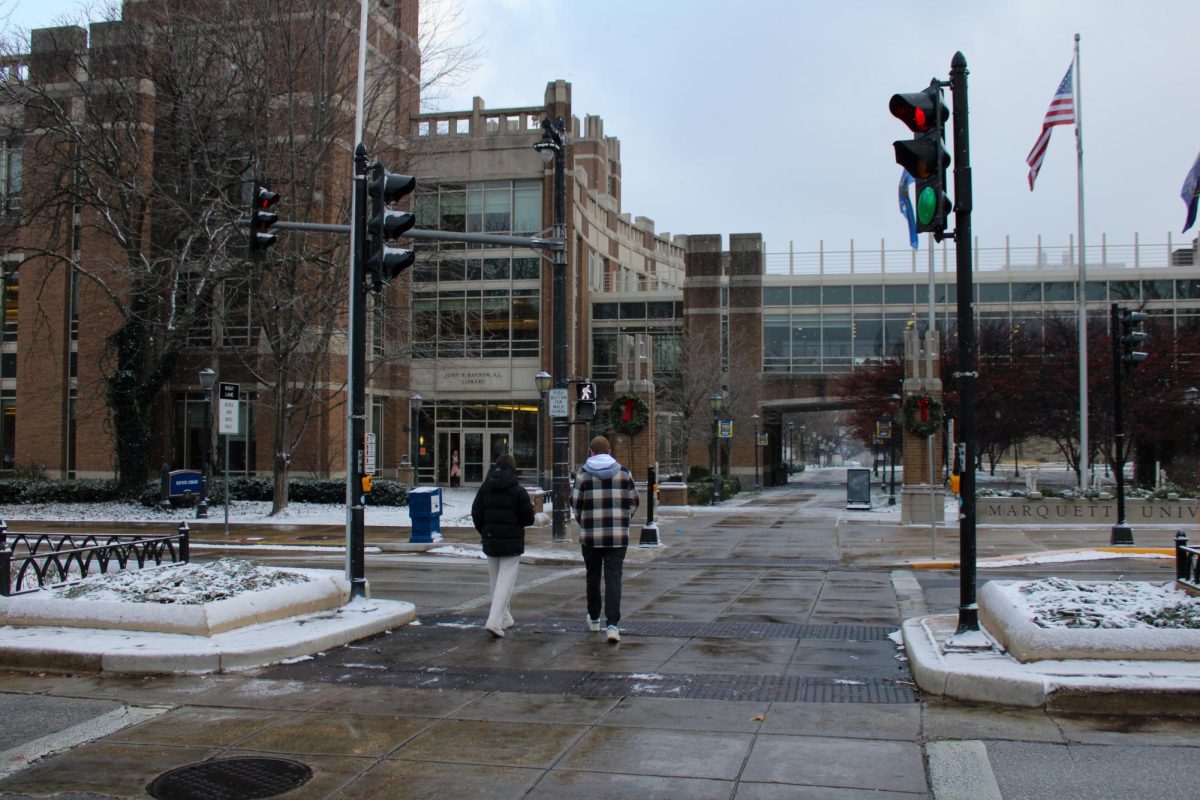Marquette University’s seal has been a controversial topic for many years now, particularly due to its inaccurate portrayal of Native Americans.
Marquette’s current seal has two parts within a blue circular border. The upper part includes the Latin Words “Numen Flumenque,” which translates to “God and the (Mississippi) River.” The lower half of the seal depicts Father Marquette interacting with an Indigenous individual on their journey to the Great Lakes and the Mississippi River. However, this image of Father Marquette has been cropped to leave out several Indigenous people who are in the original picture.
“A university committee appointed by President Michael Lovell is working on an updated university seal that will celebrate Marquette’s Catholic, Jesuit mission and pay tribute to the influence of Indigenous peoples on our history,” according to a Marquette Today statement March 15.
After the University Academic Senate meeting Feb. 16, changes seem to be taking shape.
“The committee has gathered input from the Jesuit community, Indigenous peoples, faculty, staff and students and the design process is underway,” according to the Marquette Today statement March. 15. “The updated seal will be shared with the Board of Trustees for review and approval at a future board meeting.”
Alex Liberato, a senior in the College of Business Administration, president of the Native American Student Association at Marquette and student body representative on the Seal Committee, has been a part of this ongoing process since his first year at Marquette.
While specific details of the seal are still being kept within the committee, Liberato said they are currently consulting with members of the local Milwaukee Jesuit community on design ideas. He said they intend to bring the final design before the Board of Trustees at their next meeting
“I’m really excited to be a part of this process and make a lasting change at Marquette for the better,” Liberato said in an email. “I’m thrilled because I don’t think I’ve ever seen so much get done in a year here at Marquette.”
Bryan Rindfleisch, assistant professor of history and member of the research team on the seal committee, played a role in the first step of the seal redesign.
As a member of the research team, Rindfleisch said their main job was to do research on Marquette’s history and give recommendations for elements that would honor Indigenous people. Their team was also there to supervise at every stage of the redesign process.
While Rindfleisch does not come from an Indigenous background himself, the other research committee members he works with are. These members include Samantha Major, assistant professor of English, who is Dakota; Jacqueline Schram, special assistant for Native American affairs at Marquette, who is First Nations and Richanda Kaquatosh, director and coordinator of Milwaukee Public School’s First Nations Studies Program, who is Menominee.
Rindfleisch said that while he could not share specific details about the seal, he believes the new design does a much better job of representing the Milwaukee community and Jesuit values than the original.
“It’s a beautiful fusion of recognizing the Indigenous presence in Milwaukee in the past and present, along with the Jesuit identity of this community,” Rindfleisch said. “It also really connects with a Milwaukee identity.”
Some Indigeneous tribes of Milwaukee include the Menominee, Ojibwe and Potawatomi.
Rindfleisch said that when people hear the words “Marquette” or “Jesuit,” most people seem to think of different religious communities around the world. However, he said the new changes to the seal are more representative of Milwaukee and Marquette’s unique identity.
Rindfleisch said that besides a few push backs and questions at the latest faculty senate meeting, the process has been quite amazing.
“Administration has been 100% full in since the very beginning, so that’s been really, really wonderful,” he said.
Rindfleisch said his entire change was originally instigated by Native American students and alumni of Marquette who have been here in the past decade.
Marquette has had a long-standing tie with the Native American people. For example, The Rev. Jacques Marquette hired Native Americans to be guides, teachers, counselors and students throughout his explorations. Marquette also formerly had a mascot called ‘The Warrior,’ which represented the Native American tribes in Wisconsin.
“When they see our (current) seal, they see this faceless individual, and that’s just a reminder of this historical erasure that’s been going on for so long,” Rindfleisch said. “That’s very painful and very damaging.”
Liberato said their work, along with the drastic increase in consciousness around social and racial issues due to the Black Lives Matter movement, has created a more receptive climate to making a real and lasting change.
“The key in my opinion was the work of previous administration members, faculty and students who worked for years to bring awareness to the seal,” Liberato said in an email.
Liberato said they also put together a committee with administration to discuss Native American issues here at Marquette and work towards a more inclusive campus for Natives. One of those initiatives includes an official Marquette University Land and Water Acknowledgement to aid in creating a more sustainable environment on campus, which is intended to come out later this spring semester.
This story was written by Skyler Chun. She can be reached at skyler.chun@marquette.edu.

